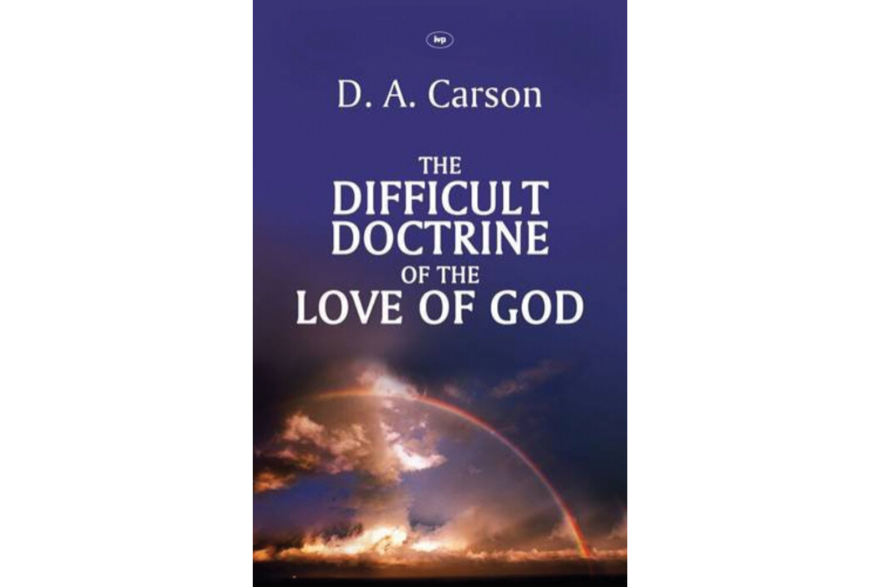Book Review: The untameable God of love

Reviewer: Dani Scarratt
The Difficult Doctrine of the Love of God
D. A. Carson, IVP, 2000.
The Difficult Doctrine of the Love of God is a somewhat surprising title, as Don Carson is aware. After all, the idea of God’s love is not conceptually difficult like, say, the Trinity or Incarnation. Nor is it difficult for our modern sensibilities to swallow, the way God’s judgement or moral demands might be. ‘God loves you’ is about as far from offensive as it gets.
Carson identifies two particular kinds of difficulty. The first has to do with grasping and talking about God’s love in the current cultural context. When we detach the idea of a loving God from a Christian framework that includes God’s authority, holiness, justice and personhood, God’s love becomes ‘sanitized, democratized, and above all sentimentalized’ (p12). Surface agreement between Christians and others about God’s love can mask deep differences in what it means for us. Can a God who loves us punish us? Forbid sex outside marriage? Allow the death of a child?
Other difficulties spring from Christianity itself. How can the many facets of God’s love as presented in the Bible be understood in relation to each other? Carson outlines five different ways the Bible speaks of God’s love, and he returns to these throughout the book: the love between the Father and Son (discussed at length in chapter 2); God’s providential love over creation; his saving love for the fallen world; his particular electing love; and his provisional love for his people. The God who so loved the world that he sent his son to save it (saving love; John 3:16) is also the God who loved Jacob but hated Esau (electing love; Malachi 1:2-3). The God who sends the sun and rain on the just and unjust alike (providential love; Matthew 5:45) is also the God who warns that disasters will follow disobedience (provisional love; Deuteronomy 28). Carson’s discussion of the theological and pastoral impacts of prioritising any one of these five aspects of God’s love at the expense of others is a highlight of the book (pp23ff).
In a similar vein, Carson goes on to explore how God’s multifaceted love relates to his other characteristics—in particular his sovereignty (chapter 3) and wrath (chapter 4).
Carson’s response to these difficulties is not to resolve them, but to carefully lay out what the Bible says about God and his love in all its complexity, and warn against oversimplification. ‘We are dealing with God, and fatuous reductionisms are bound to be skewed and dangerous’ (p17). If this answer is disappointing, we must get used to disappointment. It’s the answer offered by the book of Job. Job’s friends attempt to reduce God’s justice to a simplistic formula: ‘God doesn’t let bad things happen to righteous people’ and are rebuked by God for it. Job, convinced of his righteousness, is distraught and confused, but lets God be God, and is ultimately rewarded.
Reflecting on all this, I found Carson’s discussion of God’s love not so much disappointing as awe-inspiring. What shines clearly through these pages is that God is a person, not a force. He is loving, but his love is not a predictable algorithm, any more than any other aspect of his character. We cannot domesticate God, and Carson’s example encourages us to resist the temptation to try.
The Difficult Doctrine of the Love of God is a short book—only four chapters—but not a quick read. There is some theological jargon (nothing a quick Google search can’t explain). But it’s well worth spending the time to read it slowly and contemplate God’s amazing love.
1 Response
Leave a comment
Comments will be approved before showing up.




Joshua Hesford
October 15, 2021
Lovely review, thanks Dani!